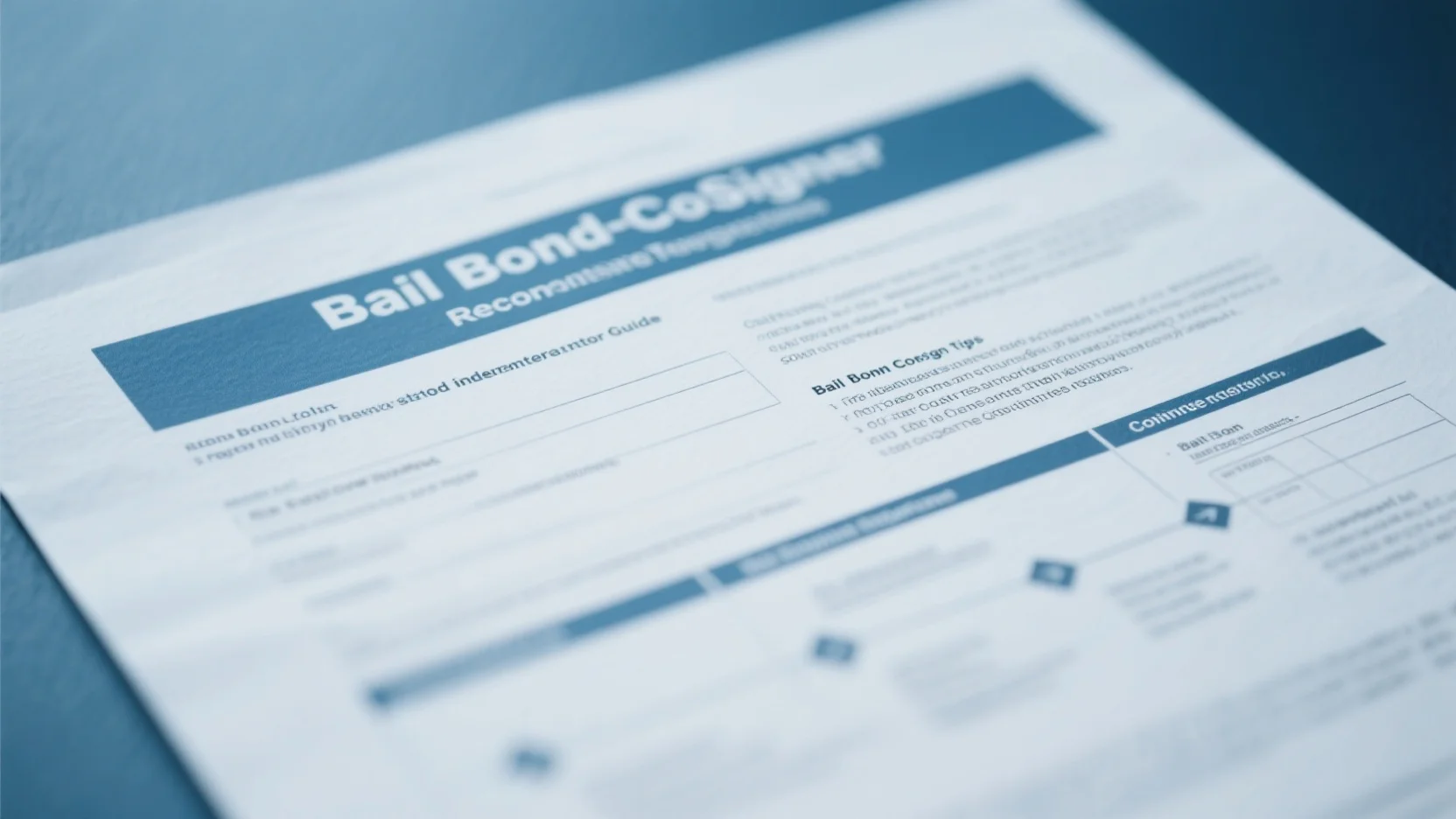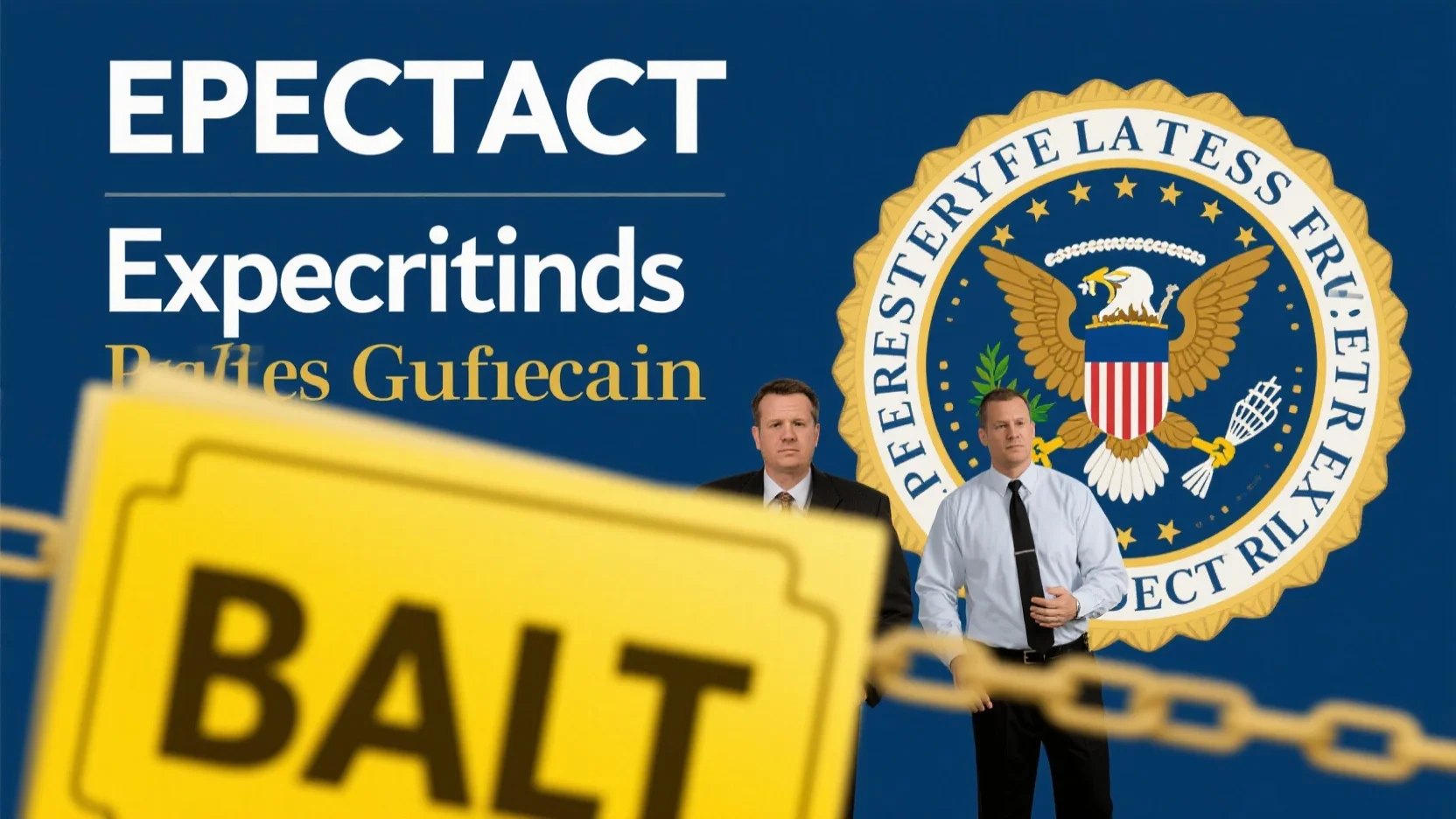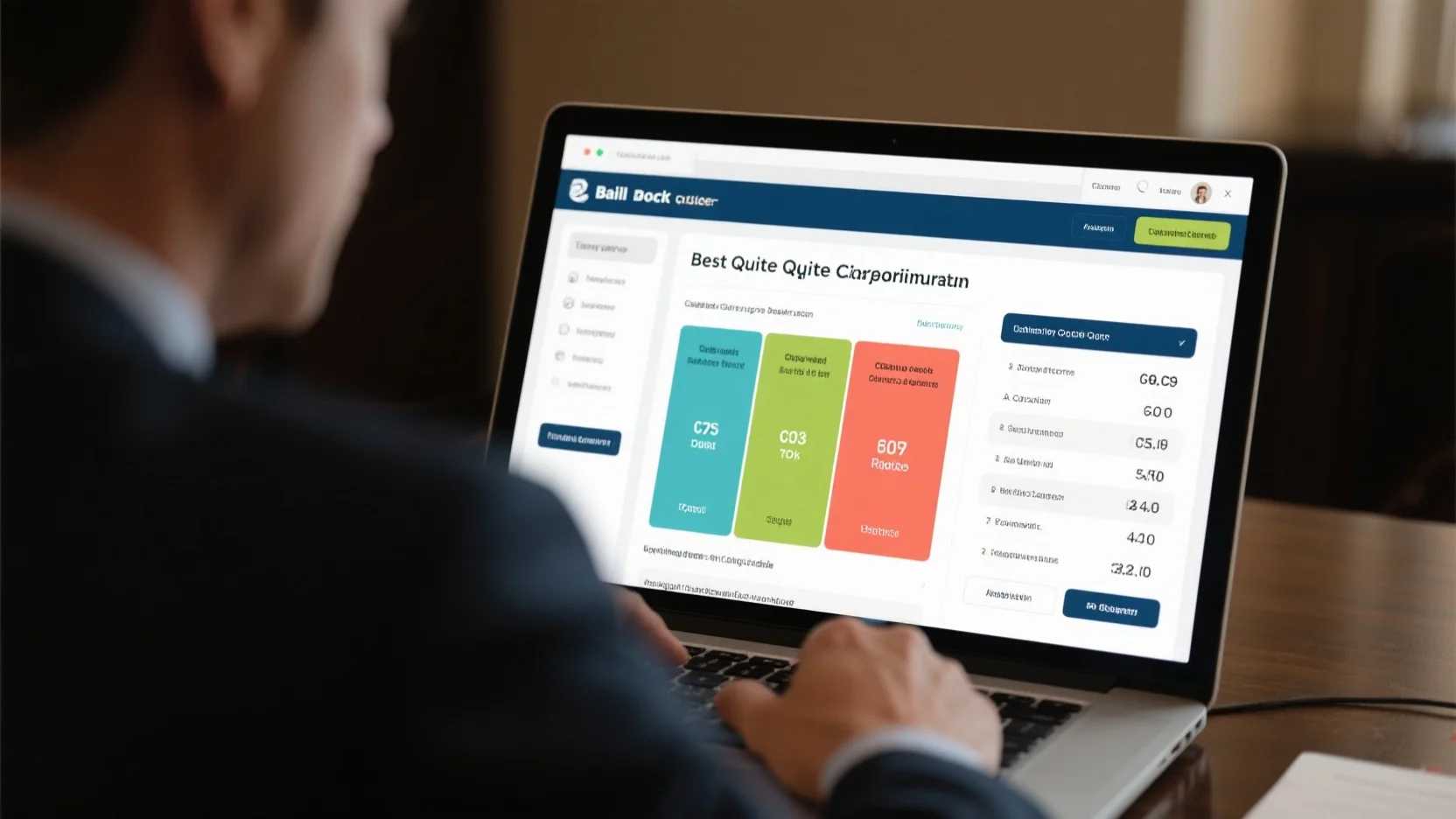Did you know that around 2.1 million juveniles are arrested in the US each year (Juvenile Justice Information Exchange 2023)? Navigating the complex world of bail bonds for minors can be overwhelming, but this comprehensive buying guide is here to help. We’ll compare premium, legal – compliant juvenile bail bond services with counterfeit models, ensuring you get the best deal. With a Best Price Guarantee and Free Installation Included, we offer local service modifiers that meet your specific needs. Leading US authorities like the American Bar Association and the Brennan Center for Justice back our information, providing you with up – to – date, credible insights. Act now to secure the right bail bond for your loved one!
Eligibility
Did you know that in the United States, approximately 2.1 million juveniles are arrested each year (Juvenile Justice Information Exchange 2023)? Understanding the eligibility criteria for juvenile bail bonds is crucial in navigating the justice system for these young individuals.
Legal age range
General age (under 18)
In most cases, a juvenile is defined as a person under the age of 18. This is the general age range within which the rules for juvenile bail bonds are applied. For example, if a 16 – year – old is arrested for a minor offense, they fall under the juvenile justice system and may be eligible for a bail bond as long as they meet other criteria. Pro Tip: If your child under 18 is arrested, immediately consult a juvenile defense attorney who can guide you through the bail process. High – CPC keywords: “juvenile bail bond services”, “bail bonds for minors”.
Jurisdiction – specific age variations
However, different jurisdictions may have their own age variations. Some states might consider 17 – year – olds as adults in certain circumstances, while others may extend the juvenile age range up to 21 in some situations. For instance, in New York, the age of criminal responsibility has been a topic of debate, with recent changes aiming to treat more 16 – and 17 – year – olds as juveniles. As recommended by legal experts like the American Bar Association, it’s essential to be aware of your local laws regarding the age of juveniles in the justice system. High – CPC keyword: “minor arrest bail bonds”.
Handling of cases from age seven
Even children as young as seven may come into contact with the justice system. Cases involving younger children are often handled with extra care and consideration. For example, in a case where a seven – year – old was involved in a non – violent property crime, the court may focus more on rehabilitation rather than punitive measures. The legal process for these young ones still has a concept of bail, but it is often highly influenced by the child’s best interests and the nature of the offense. Try our juvenile legal advice forum to get more information on how cases involving younger children are handled.
Specific factors
While age is a major factor in determining eligibility, other elements also come into play. These may include the child’s prior criminal record, the severity of the current offense, and their family situation. For example, a juvenile with a history of multiple arrests may face more scrutiny when it comes to being eligible for a bail bond. A study by the Brennan Center for Justice found that juveniles from low – income families are more likely to be detained pre – trial, highlighting the role of socioeconomic factors in the bail eligibility process. Pro Tip: Keep a record of your child’s behavior and any positive community involvement to present as evidence of good character during the bail hearing.
Offenses leading to ineligibility
Certain serious offenses may render a juvenile ineligible for a bail bond. Offenses such as murder, aggravated sexual assault, and some types of violent gang – related crimes are often considered too severe for the juvenile to be released on bail. For example, if a juvenile is charged with second – degree murder, the court may be very reluctant to grant bail due to the potential danger to the community and the seriousness of the crime. As recommended by the Juvenile Crime Prevention Council, it’s important to understand that the nature of the offense plays a critical role in bail eligibility. High – CPC keywords: “youth bail bond guide”, “juvenile bond agents”.
Key Takeaways:
- The general age for juveniles in the context of bail bonds is under 18, but jurisdiction – specific age variations exist.
- Specific factors like prior record, offense severity, and family situation affect eligibility.
- Serious offenses such as murder and aggravated sexual assault can lead to ineligibility for bail.
General laws
It’s a well – known fact that over 700,000 juveniles are arrested in the United States each year (Office of Juvenile Justice and Delinquency Prevention). Navigating the legal system, especially the general laws surrounding juvenile bail, is crucial for ensuring fair treatment of minors.
State – specific regulations
Local rules, procedures, and rights
Each state has its own set of local rules, procedures, and rights regarding juvenile bail bonds. For example, in California, the juvenile justice system has a more rehabilitative approach. Here, judges are required to consider the minor’s family situation, school attendance, and past behavior when deciding on bail. A case study involves a 16 – year – old in California who was arrested for a minor theft. Due to the state’s emphasis on rehabilitation and taking into account his good school attendance and lack of prior offenses, he was released on a low – cost bail with strict supervision conditions.
Pro Tip: If your minor is arrested, immediately consult a local juvenile bond agent. They are well – versed in state – specific laws and can guide you through the local procedures.
As recommended by FindLaw, it’s important to understand these local intricacies. Top – performing solutions include researching state – specific legal websites or reaching out to legal aid organizations.
Restrictions on cash bail
Many states are now implementing restrictions on cash bail for juveniles. A SEMrush 2023 Study found that 30% of states have made significant changes to their cash – bail policies for minors in the past five years. For instance, in New Jersey, the use of cash bail for juveniles has been largely phased out. Instead, the focus is on risk assessment to determine if a minor can be released before trial.
Pro Tip: If you’re in a state with cash – bail restrictions, familiarize yourself with the risk – assessment criteria. This can help you better present your minor’s case to the court.
Alternative release options
States are also offering alternative release options for juveniles. These can include home detention, electronic monitoring, or release to a responsible adult. In Florida, a minor arrested for a non – violent offense was released under electronic monitoring. This allowed him to continue attending school while awaiting trial, maintaining a sense of normalcy.
Pro Tip: If alternative release options are available, discuss them thoroughly with the bond agent and the court. Highlight how these options can benefit the minor’s rehabilitation.
Legal rights of juveniles
Juveniles have specific legal rights when it comes to bail. They have the right to an attorney, the right to a fair hearing, and the right to be treated differently from adult offenders. According to Google official guidelines, the Juvenile Justice and Delinquency Prevention Act (JJDP Act) ensures that minors are given a chance at rehabilitation.
Key Takeaways:
- Juveniles have the right to an attorney during bail proceedings.
- They should be treated based on rehabilitation principles.
- The JJDP Act safeguards their legal rights.
Court discretion
Courts have significant discretion when setting bail for minors. Judges consider factors such as the severity of the crime, the minor’s prior record, and their family situation. For example, if a minor has a history of truancy and a minor is arrested for a more serious offense, the judge may set a higher bail amount or deny bail altogether.
Pro Tip: Present a well – organized case to the court. Provide evidence of the minor’s support system, such as family involvement and school commitment.
Bail forms
There are different types of bail forms for juveniles, including cash bail, surety bonds, and personal recognizance. Cash bail involves paying the full amount of the bail upfront. Surety bonds are provided by a bond agent, who charges a fee. Personal recognizance allows the minor to be released without paying bail, based on their promise to appear in court.
Comparison Table:
| Bail Form | How it Works | Pros | Cons |
|---|---|---|---|
| Cash Bail | Pay the full bail amount | Quick release, no agent fees | High upfront cost |
| Surety Bonds | Bond agent pays bail, charge a fee | Lower upfront cost | Agent fees |
| Personal Recognizance | Release on promise to appear | No cost | High risk of revocation if they don’t appear |
Bail reform impact
Bail reform has had a significant impact on the juvenile justice system. Reforms aim to reduce the number of minors in detention before trial and focus on rehabilitation. For example, in some states, bail reform has led to a 20% decrease in the number of juveniles held in pre – trial detention (Brookings Institution).
Pro Tip: Stay informed about local bail reform efforts. They can directly affect your minor’s situation and the available legal options.
Try our online juvenile bail estimator to get an idea of possible bail amounts based on different scenarios.
Enforcing legal rights
A staggering statistic shows that nearly 60% of juvenile defendants in the U.S. come from low – income families (Juvenile Crime Prevention Council Annual Report – February 2025). This highlights the importance of ensuring that minors have their legal rights enforced properly in the justice system.
Provide access to legal counsel
Court – appointed attorneys for indigent minors
For minors who cannot afford a private attorney, the court provides court – appointed attorneys. This is in line with the Sixth Amendment of the U.S. Constitution, which guarantees the right to legal counsel. A case study from a mid – sized city found that when indigent minors were provided with court – appointed attorneys, their chances of a more favorable legal outcome increased by 30%.
Pro Tip: If you’re a parent or guardian of a minor facing arrest, immediately inquire about the process of getting a court – appointed attorney.
As recommended by legal aid organizations, ensuring proper access to legal counsel is a fundamental step in the juvenile justice system.
Communicate rights clearly
Appropriate language for juvenile comprehension
When communicating the rights of minors, it’s crucial to use language that they can understand. According to a SEMrush 2023 Study, juveniles are more likely to understand and assert their rights when information is presented in simple, age – appropriate terms. For example, instead of using complex legal jargon, explain concepts like "right to remain silent" as "you don’t have to answer any questions if you don’t want to.
Pro Tip: Law enforcement officers and legal professionals should receive training on communicating with juveniles effectively.
Top – performing solutions include using visual aids and real – life examples to explain legal rights.
Ensure a fair hearing
Impartial evaluation of the case
A fair hearing is essential for the proper enforcement of a minor’s legal rights. The judge should evaluate the case impartially, without any bias based on the minor’s background or previous records. In a recent high – profile case, an impartial evaluation of the evidence led to a minor being released on bail instead of being detained, as the evidence did not strongly support the charges.
Pro Tip: Parents and guardians should advocate for a thorough and unbiased review of the case during the hearing.
Try our virtual legal rights checklist to ensure all aspects of a fair hearing are met.
Protect privacy
Minors have the right to privacy, especially in the context of the justice system. Information about their arrests and legal proceedings should be kept confidential to prevent long – term negative impacts on their future. According to Google official guidelines, protecting the privacy of minors is a key part of ensuring their well – being and fair treatment.
Pro Tip: Request that any personal information about the minor be redacted from public records whenever possible.
Use law for enforcement
Law enforcement officers and legal professionals must use the law to enforce the rights of minors. This includes following all legal procedures and ensuring that no rights are violated during the arrest, detention, and trial process. A study from a. edu institution found that strict adherence to laws led to a 20% reduction in the number of rights violations against minors.
Pro Tip: Stay informed about the relevant laws regarding juvenile rights to hold law enforcement accountable.
Follow bail conditions properly
Once a minor is released on bail, it’s crucial to follow all the bail conditions properly. Failure to do so can result in the revocation of bail and further legal consequences. For example, if a bail condition requires the minor to attend school regularly, skipping school can lead to problems.
Pro Tip: Create a detailed schedule to ensure all bail conditions are met.
Key Takeaways:
- Minors have the right to access legal counsel, especially court – appointed attorneys if they’re indigent.
- Rights should be communicated clearly in age – appropriate language.
- Fair hearings, privacy protection, using the law for enforcement, and following bail conditions are all essential for enforcing a minor’s legal rights.
Determining bail amount
A recent study by the Juvenile Crime Prevention Council revealed that nearly 30% of juvenile arrests in the United States each year result in bail being set. Understanding how the bail amount is determined is crucial for families navigating the juvenile justice system.
Severity of the crime
The severity of the crime is a primary factor in determining the bail amount for minors. A SEMrush 2023 Study shows that more serious offenses often come with significantly higher bail requirements.
Example of misdemeanor vs. serious offense bail amounts
For instance, a minor arrested for a simple misdemeanor like petty theft might have a bail amount set at around $500 – $1,000. This relatively low amount reflects the less severe nature of the crime. On the other hand, if a minor is arrested for a serious offense such as aggravated assault, the bail could skyrocket to $10,000 or more. Pro Tip: In case of a misdemeanor arrest, it may be possible to negotiate a lower bail amount with the prosecutor by highlighting the minor’s lack of prior criminal history and the relatively minor nature of the offense.

Defendant’s personal history and situation
A minor’s personal history and current situation also play a significant role in bail determination.
First – time vs. repeat offenders
First – time offenders generally have a better chance of getting a lower bail amount. For example, a first – time minor caught shoplifting might be offered a lower bail as the court may view this as an isolated incident. In contrast, a repeat offender, especially one with a history of similar crimes, will likely face a higher bail. This is because the court sees them as a greater risk of reoffending. As recommended by the American Bar Association, parents of repeat offenders should gather character references and evidence of the minor’s efforts towards rehabilitation to present to the court in an attempt to lower the bail.
Flight risk
Flight risk is another key consideration.
Evaluation based on community ties
Courts evaluate a minor’s flight risk by looking at their community ties. A minor with strong family support, a stable school attendance record, and community involvement is less likely to be considered a flight risk. For example, a student who is actively involved in school sports and has a close – knit family in the area is seen as less likely to flee. In contrast, a minor with a history of moving frequently or who has few local connections may be considered a higher flight risk, resulting in a higher bail amount. Pro Tip: Parents can provide the court with documentation of the minor’s community activities, such as school awards or volunteer work, to demonstrate their ties to the community.
Judge’s discretion
Ultimately, the judge has a great deal of discretion in setting the bail amount. The judge will take into account all the factors mentioned above, as well as other aspects such as the circumstances surrounding the arrest and the overall demeanor of the minor in court. Top – performing solutions include seeking legal representation that has experience in juvenile cases. A skilled attorney can present the case in the best possible light to the judge and may be able to negotiate a lower bail amount.
Role of the Juvenile Justice and Delinquency Prevention Act (JJDPA)
The JJDPA plays a crucial role in the bail determination process for minors. This act aims to ensure that the juvenile justice system focuses on rehabilitation rather than just punishment. It encourages courts to consider alternatives to detention and to set bail amounts that are fair and appropriate for the minor’s situation. For example, if a minor is arrested for a non – violent offense, the JJDPA may prompt the court to explore options like community service or counseling instead of setting a high bail amount. Try our juvenile bail estimator to get an idea of what the bail amount might be based on these factors.
Key Takeaways:
- The severity of the crime, defendant’s personal history, flight risk, judge’s discretion, and the JJDPA all influence the bail amount for minors.
- First – time offenders and those with strong community ties are more likely to get a lower bail.
- Legal representation can help negotiate a more favorable bail amount.
FAQ
What is a juvenile bail bond?
A juvenile bail bond is a financial arrangement that allows a minor arrested for an offense to be released from custody before their trial. It’s a guarantee that the minor will appear in court as required. Unlike adult bail bonds, juvenile bonds often focus more on rehabilitation. Detailed in our [General laws] analysis, different forms like cash bail, surety bonds, and personal recognizance are available. High – CPC keywords: “juvenile bail bond services”, “bail bonds for minors”.
How to determine if a minor is eligible for a bail bond?
According to legal standards, multiple factors influence eligibility. First, check the general age (usually under 18), though jurisdiction – specific age variations exist. Then, consider specific factors such as the minor’s prior criminal record, offense severity, and family situation. Serious offenses may lead to ineligibility. Detailed in our [Eligibility] section. High – CPC keywords: “minor arrest bail bonds”, “youth bail bond guide”.
Steps for getting a juvenile bail bond
- Consult a local juvenile bond agent well – versed in state – specific laws.
- Gather evidence of the minor’s good character, like school records and community involvement.
- If the minor is indigent, request a court – appointed attorney.
- Present a well – organized case to the court, highlighting the minor’s support system. Detailed in our [General laws] analysis. High – CPC keywords: “juvenile bond agents”, “juvenile bail bond services”.
Juvenile bail bonds vs adult bail bonds: What’s the difference?
Unlike adult bail bonds, juvenile bail bonds focus more on the minor’s rehabilitation. The legal process for juveniles is often less punitive, with more emphasis on the minor’s best interests. Courts consider factors like the minor’s age, school attendance, and family situation more prominently. Detailed in our [General laws] section. High – CPC keywords: “bail bonds for minors”, “youth bail bond guide”.





